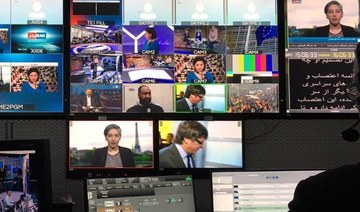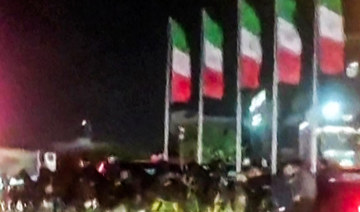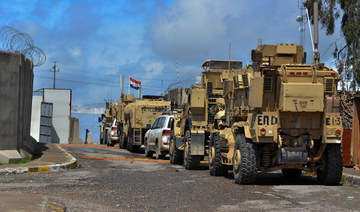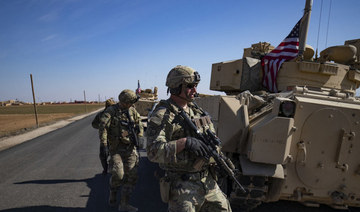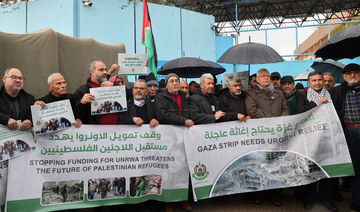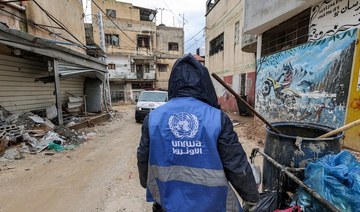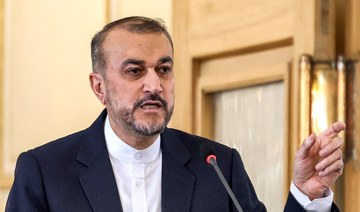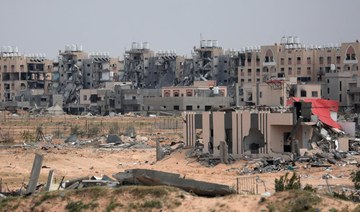TEHRAN: An Iranian Revolutionary Guards general claimed Thursday that the Islamic republic has developed a hypersonic missile capable of penetrating all defense systems, raising concerns from the UN nuclear watchdog.
Hypersonic missiles, like traditional ballistic missiles which can deliver nuclear weapons, can fly more than five times the speed of sound.
“This hypersonic ballistic missile was developed to counter air defense shields,” General Amirali Hajjizadeh, the commander of the Islamic Revolutionary Guard Corps aerospace unit said, quoted by Iran’s Fars news agency.
“It will be able to breach all the systems of anti-missile defense,” said the general, adding that he believed it would take decades before a system capable of intercepting it is developed.
“This missile, which targets enemy anti-missile systems, represents a great generational leap in the field of missiles.”
The head of the International Atomic Energy Agency (IAEA) Rafael Grossi expressed concerns about the announcement.
“We see that all these announcements increase the attention, increase the concerns, increase the public attention to the Iranian nuclear program,” Grossi told AFP on the sidelines of the COP27 climate summit in Sharm el-Sheikh, Egypt.
But he added that he does not see this as “having any influence” on negotiations over the Islamic republic’s nuclear program.
The announcement comes after Iran admitted on Saturday that it had sent drones to Russia, but said it had done so before the Ukraine war.
The Washington Post reported on October 16 that Iran was preparing to ship missiles to Russia, but Tehran rejected the report as “completely false.”
It also comes at a time of protests that have rocked Iran since the September 16 death of Mahsa Amini after her arrest for allegedly flouting the Islamic republic’s dress code for women.
Unlike ballistic missiles, hypersonic missiles fly on a trajectory low in the atmosphere, potentially reaching targets more quickly.
North Korea’s test of a hypersonic missile last year sparked concerns about the race to acquire the technology, which is currently led by Russia, followed by China and the United States.
Both Iran and Russia are targeted by stringent sanctions — Iran after the US unilaterally pulled out of the 2015 nuclear deal, and Russia since it invaded Ukraine in February.
The two countries have responded to the sanctions by boosting cooperation in key areas to help prop up their economies.
Iran on Wednesday hosted Russia’s security chief Nikolai Patrushev for talks on subjects that the Russian side said included “the fight against terrorism and extremism” as well as measures to counter Western interference.
A hypersonic missile is manoeuvrable, making it harder to track and defend against.
While countries like the United States have developed systems designed to defend against cruise and ballistic missiles, the ability to track and take down a hypersonic missile remains a question.
Thursday’s announcement comes against a backdrop of stalled talks on reviving the 2015 nuclear deal.
The deal reached with six major powers — Britain, China, France, Germany, Russia and the US — gave Iran relief from sanctions in return for guarantees it could not develop an atomic weapon.
Iran has always denied wanting a nuclear arsenal.
The deal collapsed after the US’s unilateral withdrawal in 2018 under then president Donald Trump.
Iran’s claim to have developed a hypersonic missile also follows its announcement on November 5 of the successful test flight of a rocket capable of propelling satellites into space.
The United States has repeatedly voiced concern that such launches could boost Iran’s ballistic missile technology, extending to the potential delivery of nuclear warheads.
In March, the US government imposed sanctions on Iran’s missile-related activities.
Iran on Wednesday warned its neighbors including Saudi Arabia that it would retaliate against moves to destabilize it amid the protests sparked by Amini’s death.
“I would like to say to Saudi Arabia that our destiny and that of other countries in the region are linked to each other,” Intelligence Minister Esmail Khatib said.
“Iran has so far adopted strategic patience but it cannot guarantee that it will maintain this strategic patience if hostilities against it continue.
“If the Islamic republic decides to punish these countries, their glass palaces will collapse and they will no longer enjoy stability,” said Khatib.
The minister has also warned Britain it would “pay” for harboring hostile Persian-language media reporting on the Amini protests.
Iran says it has developed hypersonic missile
https://arab.news/bhyy8
Iran says it has developed hypersonic missile

- Hypersonic missiles, like traditional ballistic missiles which can deliver nuclear weapons, can fly more than five times the speed of sound
- The head of IAEA Rafael Grossi expressed concerns about the announcement
Services at Dubai Airport back to normal after disruptions caused by storm
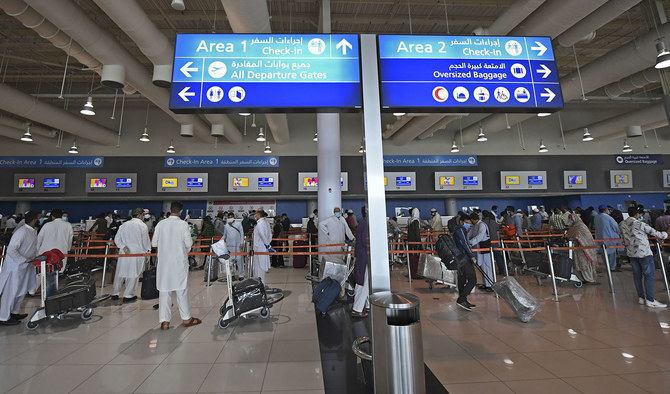
- DXB CEO Paul Griffiths says challenges remain, including baggage backlog
- Regular flight schedules have resumed, with 1,400 flights operating each day
DUBAI: Regular flight schedules at Dubai International Airport had resumed by Monday following the storm early last week that caused the highest rainfall the UAE has experienced in 75 years, Dubai Airports CEO Paul Griffiths said on Tuesday. About 1,400 flights are now operating each day.
“With roads in and around the airport 100 percent clear of water accumulation, our manpower, logistics and facilities are operating as usual again,” he added.
“To have the airport back up and running is no small feat. Also, 2,155 flights were canceled and 115 were diverted. We had to work closely with our airline partners and service providers to rework schedules, boost manpower and look after all those who had been disrupted.
“I’m continuously amazed by the unwavering dedication of our Dubai Airports employees, airline partners, government agencies, commercial partners and service partners. It has been the most challenging adverse weather event we’ve had to navigate, and our people and partners worked tirelessly to keep the operation running and to assist our guests.”
Griffiths said the welfare of passengers remained a central focus throughout the disruptions over the past week. After some initial difficulties in delivering supplies as a result of flooded roads around Dubai International and Dubai World Central airports, more than 75,000 food packs were successfully provided for passengers stranded at the two locations.
“While certain challenges remain, including processing the baggage backlog, we’re working closely with our service partners but know there’s still more work to be done and, once again, thank guests for their patience while we work through this,” said Griffiths.
“We’re deeply saddened by the ongoing impact of the heavy rainfall on affected communities and businesses across the UAE. We’re also supporting our own people who were badly affected by the weather and will continue to support wherever we can.”
US calls on Iraq to safeguard US troops after new attacks
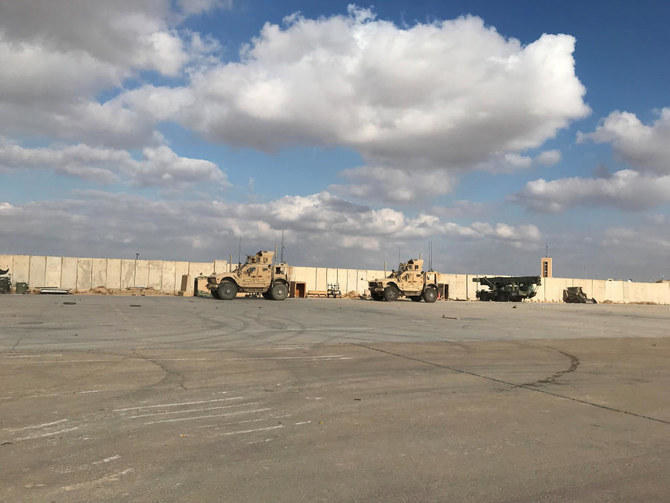
- “These attacks put coalition and Iraqi personnel at risk,” Air Force Major General Patrick Ryder told a news briefing
WASHINGTON: The US military called on Iraq’s government on Tuesday to take steps to safeguard American troops in both Iraq and Syria after failed attacks on Monday by Iran-aligned militia.
“These attacks put coalition and Iraqi personnel at risk. We call on the government of Iraq to take all necessary steps to ensure the safety of US forces in Iraq and Syria against attacks from these groups,” Air Force Major General Patrick Ryder told a news briefing.
“If these attacks continue, we will not hesitate to defend our forces, as we have done in the past.”
White House wants ‘real progress’ before restoring UNRWA funding

- “In terms of our funding of UNRWA, that is still suspended,” Kirby said
- “We welcome the results of this report and strongly support the recommendations in the report“
WAHSINGTON: The White House said Tuesday it would “have to see real progress” before restoring its funding to the UN agency for Palestinians, the main aid agency operating in war-torn Gaza.
The comments from National Security Council spokesman John Kirby came after the US froze aid to the United Nations Relief and Works Agency following accusations by Israel that its staff may have participated in the October 7, 2023, Hamas attacks.
A UN probe is looking into those accusations.
A separate independent review into UNRWA found some “neutrality-related issues” in its much-anticipated report released Monday. It noted Israel had yet to provide evidence for incendiary allegations that staff were members of terrorist organizations.
“In terms of our funding of UNRWA, that is still suspended. We’re gonna have to see real progress here before that gets changed,” Kirby said.
Many donor countries have resumed funding since Israel’s accusations, including Sweden, Canada, Japan, the EU and France — while others, including the United States and Britain — have continued to hold out.
“We welcome the results of this report and strongly support the recommendations in the report,” Kirby said, noting that the United States also faced legal constraints in restarting its funding.
Congress passed a bill signed into law by President Joe Biden last month that blocks US funding until March 2025.
UNRWA, which employs some 30,000 people, began operations in 1950 and provides services to nearly six million people across Jordan, Lebanon, Syria, the Gaza Strip and the West Bank, including East Jerusalem.
The neutrality issues highlighted in Monday’s report included staff sharing biased political posts on social media and the use of a small number of textbooks with “problematic content” in some UNRWA schools.
US sanctions four over ‘malicious cyber activity’ for Iran’s military
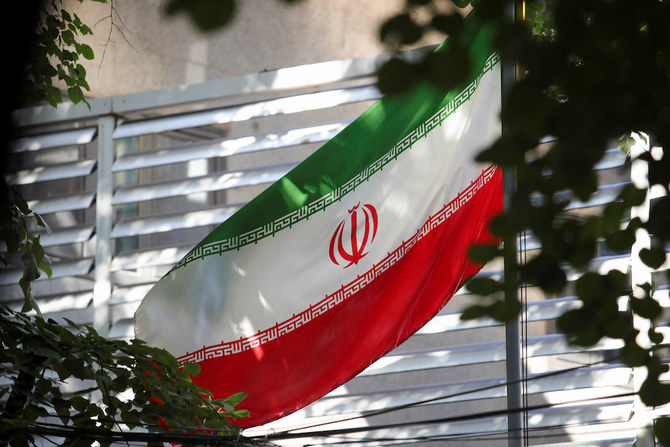
- The individuals and companies were working “on behalf of” Iran’s Islamic Revolutionary Guard Corps Cyber Electronic Command (IRGC-CEC), the Treasury said
- Tuesday’s sanctions are the latest to be levied against Tehran by the United States
WASHINGTON: The US ramped up its sanctions against Iran on Tuesday, designating four people and two companies it says were “involved in malicious cyber activity” on behalf of the country’s military.
“These actors targeted more than a dozen US companies and government entities through cyber operations, including spear phishing and malware attacks,” the US Treasury Department said in a statement.
The individuals and companies were working “on behalf of” Iran’s Islamic Revolutionary Guard Corps Cyber Electronic Command (IRGC-CEC), the Treasury said.
“Iranian malicious cyber actors continue to target US companies and government entities in a coordinated, multi-pronged campaign intended to destabilize our critical infrastructure and cause harm to our citizens,” the Treasury’s undersecretary for terrorism and financial intelligence Brian Nelson said in a statement.
“The United States will continue to leverage our whole-of-government approach to expose and disrupt these networks’ operations,” he added.
Tuesday’s sanctions are the latest to be levied against Tehran by the United States and its allies for supporting anti-Israel proxies in the Middle East and for providing military support for Russia’s war in Ukraine.
Last week, the US and Britain announced widespread sanctions against Iran’s military drone program in response to Tehran’s large-scale attack against Israel earlier this month.
That attack came in response to an April 1 air strike on the Iranian consulate in Damascus — widely blamed on Israel — that killed seven members of the Islamic Revolutionary Guard Corps, including two generals.
A day after those sanctions were unveiled, the US fined a Thailand-based firm $20 million for more than 450 possible Iran sanctions violations.
They included processing close to $300 million in wire transfers for a company jointly owned by the National Petroleum Company of Iran.
Alongside the Tuesday’s sanctions, the US Department of Justice and the Federal Bureau of Investigation (FBI) have also indicted the four individuals in question, “for their roles in cyber activity targeting US entities,” the Treasury Department said.
Egypt condemns Israeli human rights violations in Gaza Strip
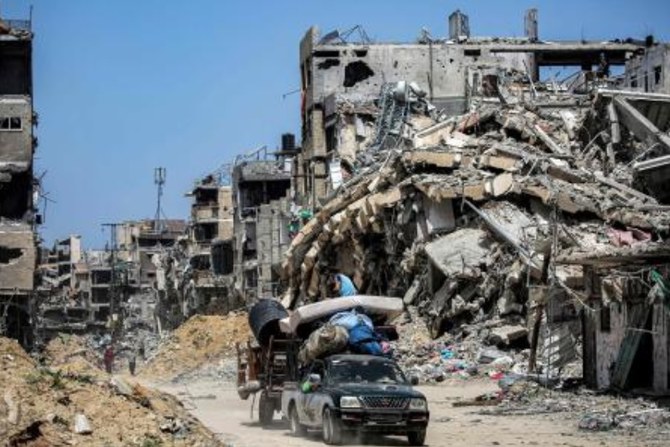
- Egypt said it condemned violations of international law including the targeting of civilians
- Abu Zeid reiterated the need for immediate intervention by the international community to stop such violations
CAIRO: Egypt has condemned the repeated Israeli violations of international law and international humanitarian law in the Gaza Strip.
The Egyptian Ministry of Foreign Affairs said: “It is regrettable and shameful that violations of international law and humanitarian values continue in such a flagrant manner in the 21st century, in full view and hearing of all countries, international organizations, and the Security Council.”
This came during statements made by ministry spokesman Ahmed Abu Zeid regarding the discovery of mass graves in the Nasser Medical Complex in Khan Yunis in the southern Gaza Strip.
Egypt said it condemned violations of international law including the targeting of civilians, displaced persons, and medical teams by Israeli forces.
Abu Zeid reiterated the need for immediate intervention by the international community to stop such violations and to conduct the necessary investigations to hold perpetrators accountable.
He added that the killing, destruction, and violence witnessed in the West Bank over the past few weeks is no less dangerous, further aggravates the crisis, and threatens to escalate tensions across all occupied Palestinian territories.
He called for an immediate halt to the violence and attacks by settlers, protected by Israeli forces, against Palestinian civilians, their property, and homes in the West Bank.
The bodies of over 200 Palestinians, including patients, have been uncovered so far in mass graves at the Nasser Medical Complex in Gaza’s Khan Younis since Saturday, according to media reports.



